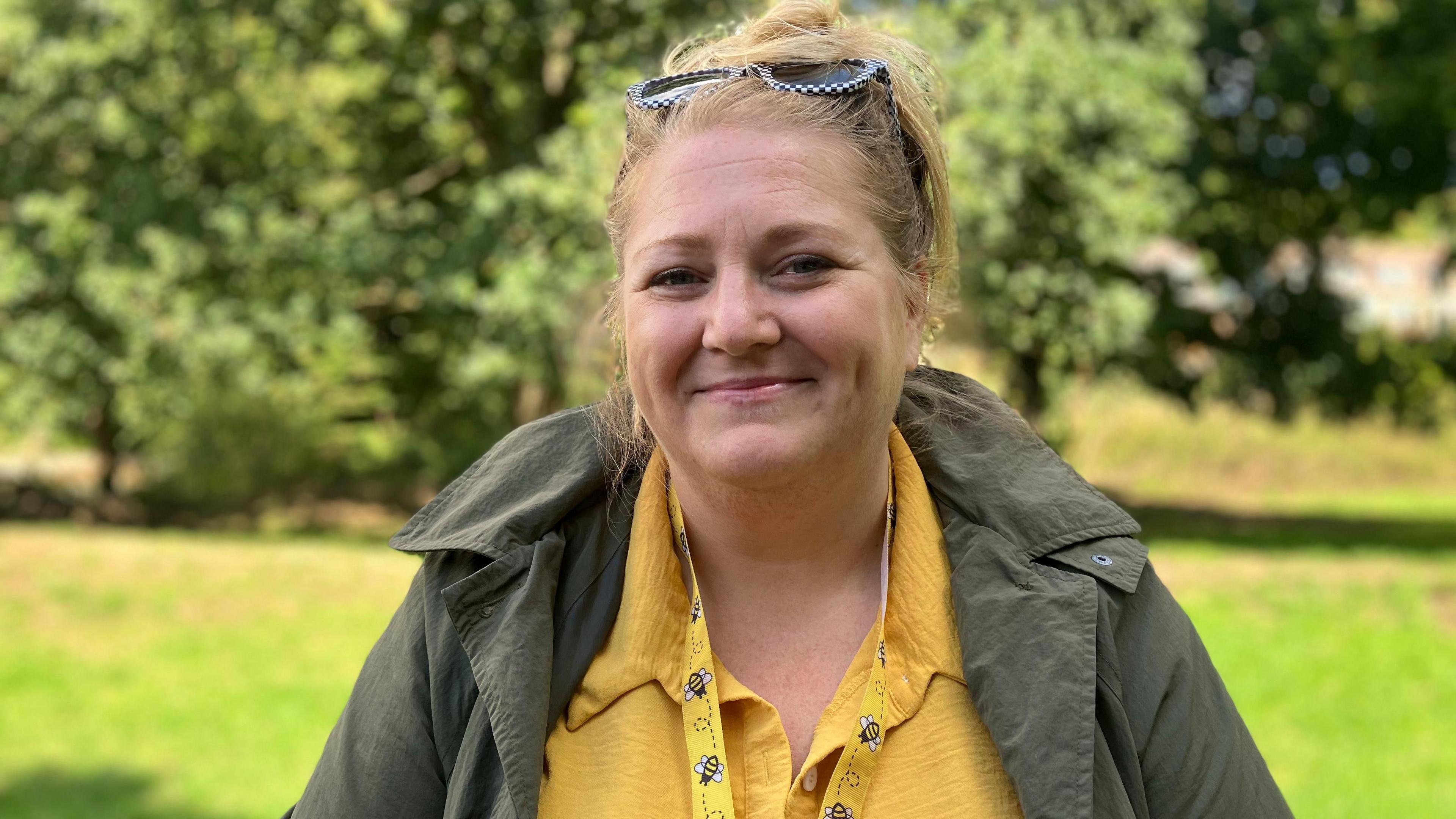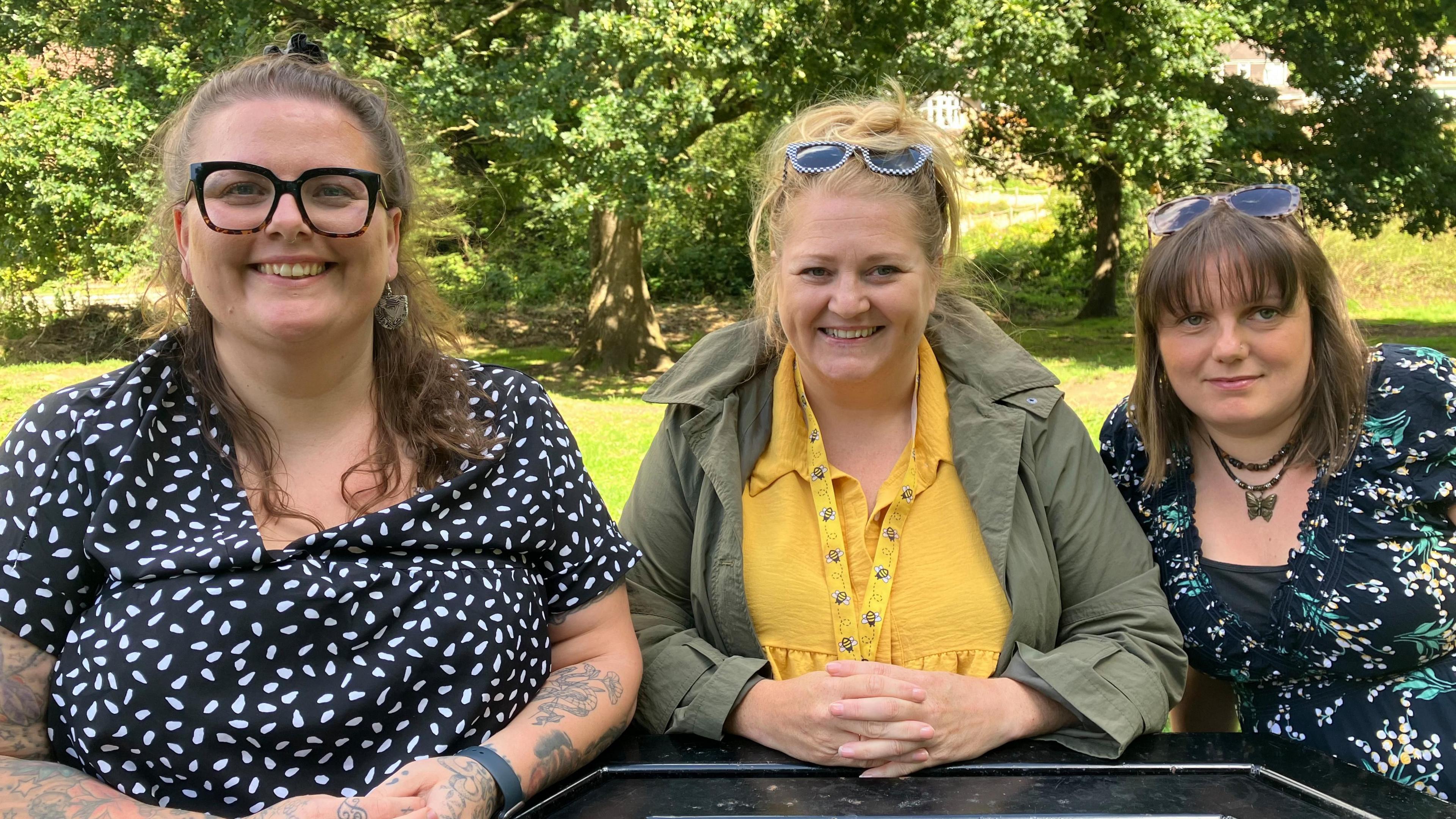MP's bill seeks primary age neurodivergence screening

TV chef Jamie Oliver joined MP Adam Dance's campaign to help children with neurodivergent traits earlier this year
- Published
Children with neurodivergent traits, such as those associated with dyslexia, autism or attention deficit hyperactivity disorder (ADHD), could be given better support in school if an MP's bill is successful when it comes before Parliament.
Yeovil Liberal Democrat MP Adam Dance said it is a "deeply personal" campaign for him because he has both severe dyslexia and ADHD, which were diagnosed when he was at primary school.
He wants the backing of MPs to introduce a bill requiring universal screening for neurodivergent traits in primary schools.
Mr Dance will present the Ten Minute Rule Bill, which allows backbenchers to bring forward proposed legislation, in the House of Commons later.
Mr Dance's bill is also calling for statutory training for teachers to help them identify and support children with neurodivergent traits.
The MP said: "Growing up with severe dyslexia, I know how tough it can be to sit in a classroom and feel like you are falling behind.
"I was often called naughty, when really I just needed the right support," he said.
"This bill is about making sure no child is left behind simply because their needs were missed."
Currently, children in Year 1 are asked to read 40 words in a phonics screening check but Mr Dance said this was "too narrow" and could miss children with dyslexia, ADHD and other traits.
He said his bill would introduce "a light-touch, teacher-led screening process, designed not to diagnose but to help teachers make small adjustments in the classroom that make a big difference".
Mr Dance said a suitable screening tool was already in development at University College London.

Sally Simpson from ADHD Somerset said there are "inconsistencies" in the support given by different schools
The proposals have been welcomed by parents of neurodivergent children in Mr Dance's constituency.
Sally Simpson is a volunteer who helps run ADHD Somerset. It offers meet-ups and activities for parents and neurodivergent children.
"We do have schools out there that are brilliant and teachers that are brilliant, but what we see is inconsistencies between the schools," she said.
"We've got families thriving; we've also got families who are just clinging on trying to get their children noticed and through education as smoothly as possible."

Leanne, Sally and Caroline from Yeovil all have neurodivergent children
Leanne Molloy said her 13-year-old daughter had "missed out on so much support because she was quiet and not displaying the usual signs of autism and ADHD".
"I think it should be mandatory that teachers are taught to know the signs and definitely they need to know about masking, because so many children are going to school masking all day to blend in and coming home and it's like a fizzy bottle they just pop and that's what I deal with daily.
"I've had teachers say to my daughter 'you need to make eye contact' - but she can't and that's incredibly painful for her.
"I think half the issue is there's too many children in one class and the teachers themselves are getting so overwhelmed and fatigued," Ms Molloy added.

Mr Dance said he was diagnosed with severe dyslexia and ADHD at a young age
Caroline Keating's seven-year-old son has recently been diagnosed as autistic and said a screening tool in primary schools would "really help".
"It gets quite exhausting and quite draining as a parent," she said, adding it must be "horrible" as a neurodivergent child, "when you're expected to go into a school and sit and do all the things that you find difficult, six or seven hours a day, without the support in place".
"I desperately worry about my son's self-esteem because probably some people in his class or the school would recognize him as 'the naughty child'.
"Thankfully, some of the staff have been just amazing at his school and get that, actually, he's cheeky and he's fun and he does have friends but I think we've worked quite hard to facilitate that myself."
Get in touch
Tell us which stories we should cover in Somerset
Follow BBC Somerset on Facebook, external and X, external. Send your story ideas to us on email or via WhatsApp on 0800 313 4630.
Related topics
- Published17 March
